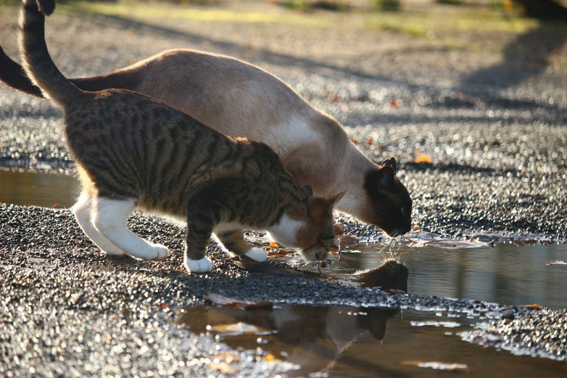Giardia
- Details
- Category: Cat diseases
- Hits: 194

Giardia lamblia is a parasitic protozoan that causes giardiasis (a parasitosis). Giardiasis is a disease that affects the digestive system. The main symptom is diarrhea (abundant, liquid, foul-smelling and with substances not absorbed by the body). The cat infected with the Guard has a predisposition to dehydration and weight loss. The cat has no fever but is not very active, tired, lethargic and exhausted. The puppies, being more delicate, are more affected by the Giardia infestation.
Once the microorganism has infected its victim, it lives in the intestine and is transmitted in the feces. Outside the body, Giardia can survive for weeks or even months. A parasite that can live and survive anywhere. It normally lives in stagnant waters, in ponds, in water holes and in non-potable and sewage-polluted waters.
The disease is transmitted via the fecal-oral route. You can become infected by ingesting contaminated water, food or soil, or through the faeces of an infected animal.
Already infected animals, evacuating, release the parasite's eggs into the environment.
The veterinarian will be able, by carrying out a simple stool test, to highlight the presence of the parasite and assign a more suitable curative therapy to our infected cat.
It will be necessary to thoroughly clean the litter and the areas where it rests or sleeps, to try to eliminate the parasite's eggs. It is necessary for the veterinarian to visit frequently by carrying out the control test to avoid the presence of other eggs and bacteria.
The disease is neither serious nor fatal but, in poor hygienic conditions, a contagion between other animals and between cats and humans is possible.
It is very difficult to eradicate and manages to survive even after disinfection treatments with chlorine.
